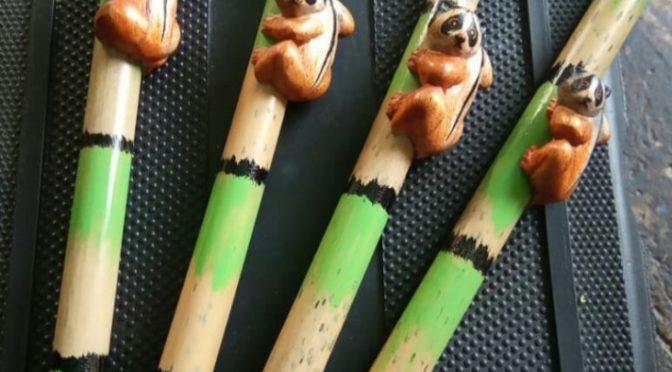Hello everyone, it’s Michela, the LFP field station coordinator, and today I would like to talk about a big nowaday issue: plastic pollution. Plastic is now everywhere. It seems quite impossible to live plastic-free but we can all take some steps to reduce our impact on the environment. Often, we use plastic bags only for a few minutes, even a few seconds. Let’s think about grocery bags, often we go to the shop, we buy a croissant to eat it straight away after we leave the shop.
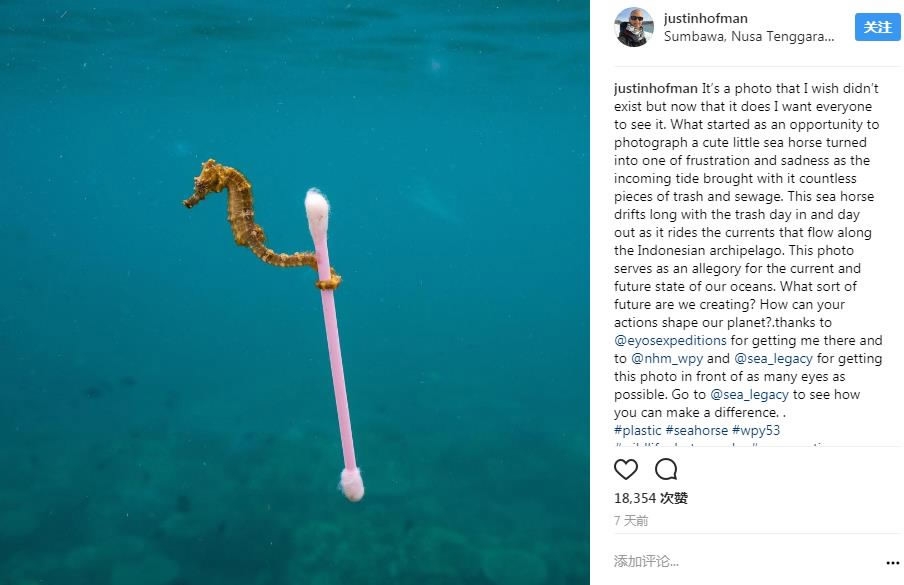
Let’s talk about cotton buds
Another example? Let’s think about cotton buds. Many companies make cotton bud stem from plastic. Millions of people have the habit to use the loo as a bin and they flush cotton buds. Unfortunately, cotton bud stems can squeeze through sewage filters. The Marine Conservation Society stated that cotton bud stems make up over 60% of all sewage-related beach litter. I got very impressed by the heartbreaking picture of “the seahorse and the cotton bud” taken by the wildlife photographer Justin Hofman, with which he won the 2017 wildlife photographer of the year. The picture was taken near the surface of a reef near Sumbawa Island, Indonesia.
Indonesia has the world’s highest levels of marine biodiversity but is second only to China as a contributor to marine plastic debris.
What about plastic straws?
Plastic straws do the same tragic end as cotton bud stems. Even though plastic straws are not the leading type of plastic waste (which are food wrappers and containers), Straws make 4% of all the plastic waste that goes on the ocean. However, the problem with straws it’s in their size. They often don’t get recycled because they are small and inconspicuous, however, even the ones that go on the recycle loads they just contaminate it because they don’t make through the mechanical recycling sorter due to their size and lightweight. Most of us can think that plastic straws are just fancy objects but many people with disabilities rely on straws daily, so it’s very important to look for sustainable alternatives.
Our new product: bamboo straws!
LFP thought about two products that can help reduce plastic waste and help Loris conservation at the same time: bamboo straws and wooden cutlery! these products are not only useful but literally pieces of art lovingly handmade by our amazing carver Pak Amank!
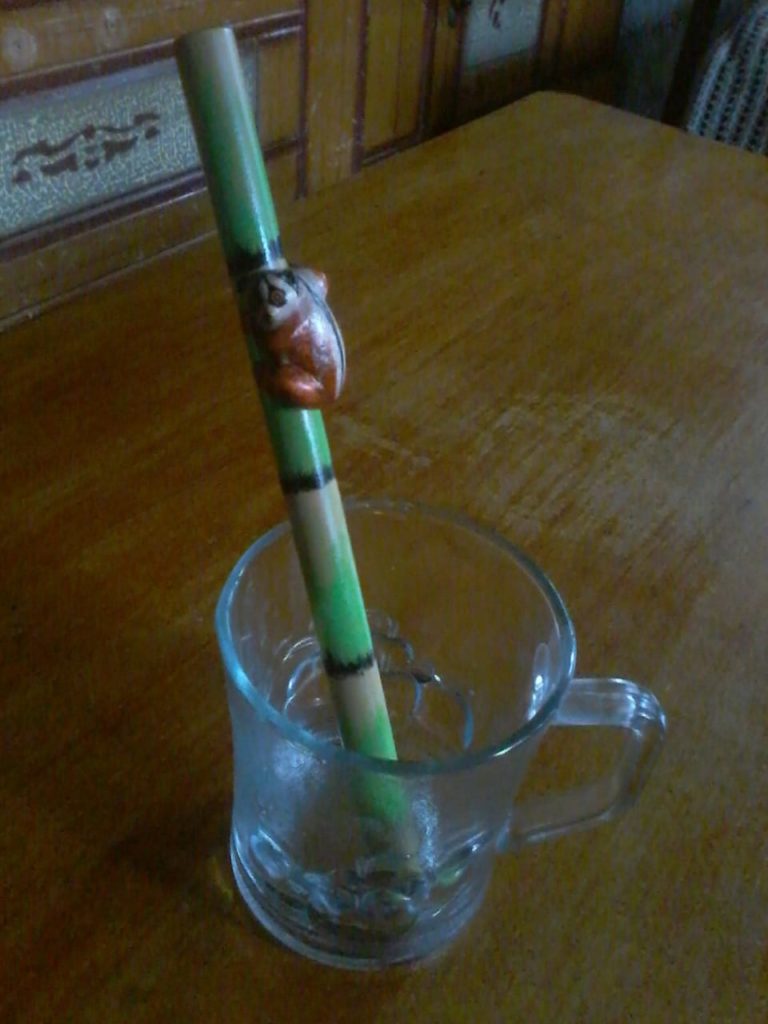
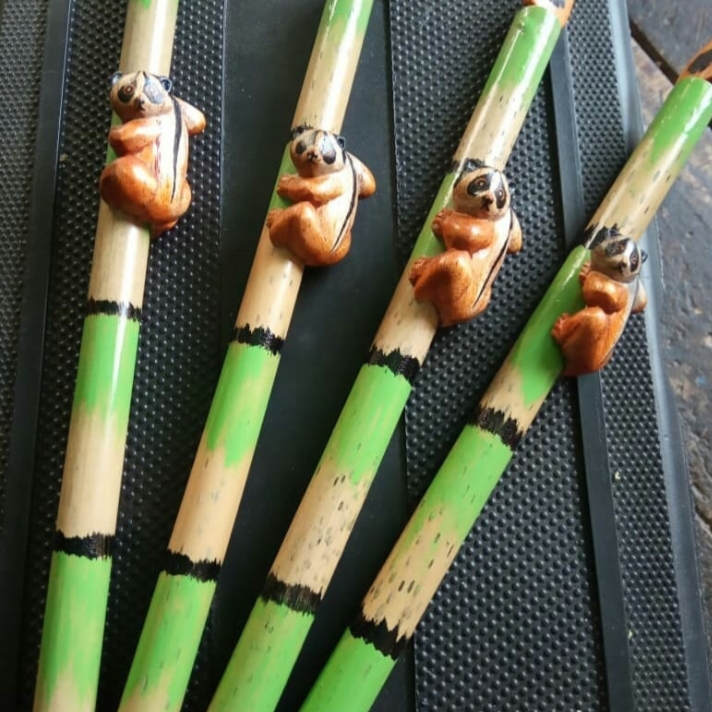
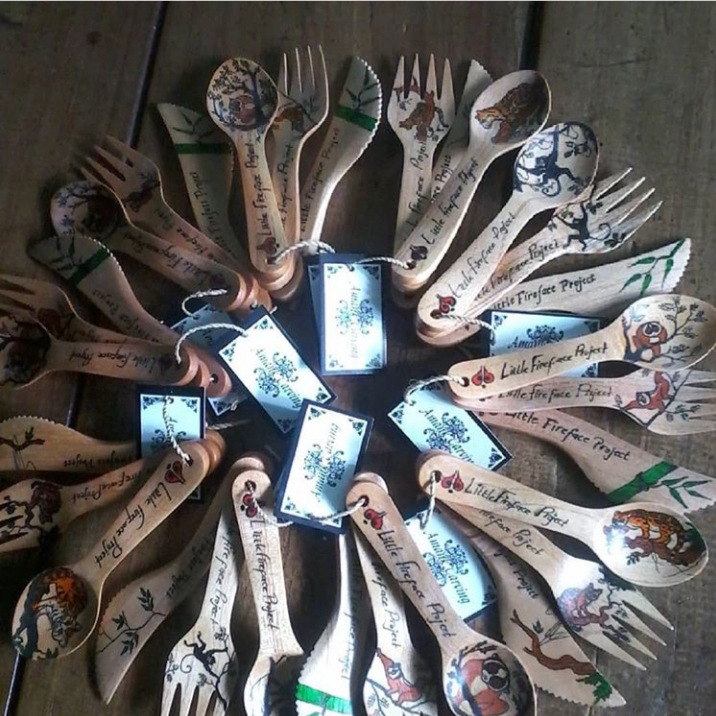
To fight against plastic waste pollution, the European parliament has voted to ban single-use plastic cutlery, cotton buds, straws, and stirrers. The ban will come to force by 2021 in all EU member states. It has been stated that by 2050 there will be more plastic in the ocean than fish (by weight). Let’s make a difference, together we can make it! Michela Balestri

